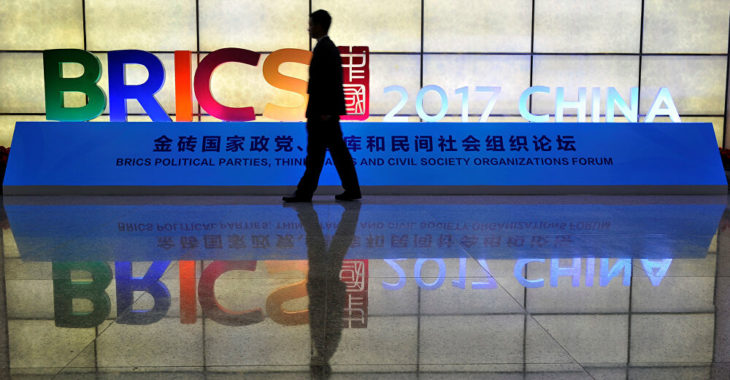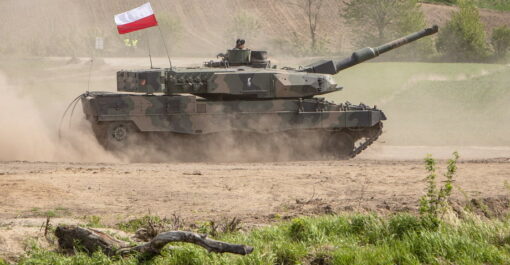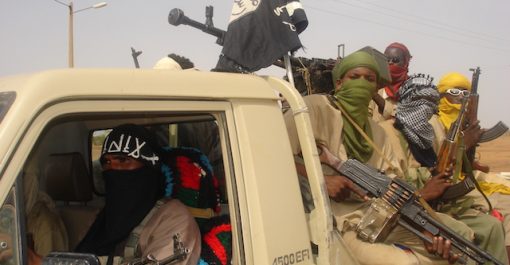L’Eurispes parteciperà ad un evento internazionale nell’ambito del Brics Civil Forum, che si svolge quest’anno sotto la presidenza della Federazione russa.
Si tratta di una conferenza web dedicata al tema dello sviluppo sostenibile delle città e dei territori agricoli e alle azioni di riequilibrio territoriale da promuovere nella fase post-Covid “Smart details in Complex Systems: best practices in urban and rural development in the post-Covid era”, in programma il 18 agosto 2020 alle ore 14,30- 16,00 (ora italiana).
Alla tavola rotonda parteciperanno esperti dei cinque Stati membri del coordinamento Brics (Brasile, Russia, India, Cina, Sudafrica) della Germania e dell’Afghanistan.
L’Italia partecipa con il segretario generale dell’Eurispes, Marco Ricceri, che presenterà una relazione sul tema della qualità dello sviluppo territoriale e la collaborazione internazionale, e con l’architetto Paolo Motta, urbanista e membro esperto del Laboratorio Brics dell’Eurispes, che presenterà una relazione sul tema dello sviluppo urbano e rurale e l’organizzazione di territori intelligenti (smart).
Il dibattito sarà moderato dalla professoressa Irina Z. Yarygina, co-presidente del gruppo di lavoro “Sviluppo sostenibile delle città e dei territori agricoli” del Brics Civil Forum, titolare della cattedra di economia e sistema bancario dell’Università MGIMO, professore della Financial University sotto il governo della Federazione russa.
I ripetuti solleciti agli Stati da parte delle Nazioni Unite ad accelerare le iniziative in materia di sviluppo sostenibile e le esigenze di ricostruzione poste dalla crisi pandemica globale, danno un nuovo impulso per imprimere una grande correzione ai tradizionali piani di sviluppo economico e territoriale, al fine di operare in maniera realmente integrata nelle tre dimensioni – economica, ambientale e sociale – della crescita; per rafforzare le collaborazioni tra gli Stati e i territori sulla base di questa piattaforma comune che tutti hanno approvato nel 2015 e si sono impegnati a realizzare concretamente.
Collegamento ZOOM:
August 18, 2020 03:30 PM (Moscow time zone)
Zoom https://us02web.zoom.us/j/83090114313?pwd=OXQ4Zjk1aDh0NHl1c1VqL002NnU5dz09
Per informazioni sul BRICS CIVIL FORUM http://civilbrics.ru/en/main-page/
Online Round Table of «Sustainable cities and rural development» working group Smart Details in Complex Systems: best practices in urban and rural development in the post-COVID era – August 18, 2020.
Time
9.30 – 11.00 AM (Brasilia)
3.30 – 5.00 PM (Moscow)
8.00 – 9.30 PM (New Delhi)
8.30 – 10.00 PM (Beijing)
2.30 – 4.00 PM (Pretoria)
The implementation of the concept of sustainable urban and rural development coupled with the development of “smart cities” is of crucial importance for the economic, social and environmental viability of the BRICS countries. The panel will discuss civic initiatives (urban planning and management as well as rural development initiatives) to make cities and rural areas inclusive, safe and sustainable. What areas of urban and rural interaction have been the most promising during the COVID-19 pandemic in the BRICS member states? Which weaknesses have been revealed?
Hereunder is the expected Program
Welcome speech
Prof., Dr. Victoria Panova Co-chair of the Civil Brics Forum, Managing director of the Russian National committee on Brics Research, Scientific Supervisor of the BRICS Russian Organizing Committee Expert Council, Vice President for International Relations of Far Eastern Federal University, Russia
Moderator
Prof., Dr. Irina Z. Yarygina, Co-Chair of the Civil Brics Working group “Sustainable cities and rural development”, Expert of the Russian National committee on Brics Research, Head of the Chair “Economics and banking” MGIMO (U) under the Ministry for Foreign Affairs, Head of Program, Professor of the Financial University under the Ministry for Finance, Russia
Key Speeches
“Family farming in Brazil: potential and challenges”
Prof., Dr. Bruno de Conti, University of Campinas (Unicamp), Sao Paulo, Brasilia
“Infrastructure bonds as a financial instrument for sustainable urban and rural development”
Prof., Dr. Igor Baluk, Financial University under the Government of the Russian Federation, Moscow, Russia
“New agricultural technologies for rural prosperity and sustainability”
Dr. Sachin Chaturvedi, General Secretary, Research and Information System for Developing Countries, New Delhi, India
“The role of public diplomacy in the era after the urban epidemic (Covid- 19)”
Prof. Wu Fie, Guangzhou Jinan University, Guangzhou, China
“Following up on BRICS commitments towards sustainable cities: deepening innovation, knowledge and technology exchange”
Prof. Karin Costa Vazquez, Fudan Scholar, Center for BRICS Studies, Shanghai, China
“Covid-19 and beyond: rights and responsibilities of persons, living in informal urban settlements”
Prof. Nirmala Gopal, University of KwanZulu-Natal (UKZN), Durban, South Africa
“Forms of Financing for municipalities: the German case”
Prof., Dr. Peter Reichling, Dean, International affairs, Chair in Banking and Finance, Otto von Guericke University, Magdeburg, Germany
“The quality of territorial development and international collaboration”
Prof. Marco Ricceri, the Secretary General, EURISPES, Rome, Italy
“BRICS urban/rural development and “smart territories”
Arch. Paolo Motta, expert, EURISPES, Rome, Italy
“A prospective from Afghanistan: challenges & opportunities”
Dr. Nazir Kabiri, Executive director, Biruni Institute, Afghanistan
Details for connection are the following:
Online Round Table of “Sustainable cities and rural development” Civil BRICS working group “Smart Details in Complex Systems: best practices in urban and rural development in the post-COVID era”
August 18, 2020 03:30 PM (Moscow time zone)
Zoom https://us02web.zoom.us/j/83090114313?pwd=OXQ4Zjk1aDh0NHl1c1VqL002NnU5dz09
ID: 830 9011 4313
Password: 568297
Looking forward to joining our discussion,
The Russian National committee on Brics Research
Civil Brics Forum
Working Group : “Sustainable cities and rural development”
Prof. Irina Yarygina”Smart Details in Complex Systems: best practices in urban and rural development in the post-Covid era”, August 18, 2020
ABSTRACT
The quality of territorial development and international collaboration
By Marco Ricceri
EURISPES, The Secretary General
Rome – Italy
The principles, policies, practices on sustainable development, in the triple economic, environmental and social dimension, are the common platform that all United Nations member states have approved and built since 2015, with the 2030 Agenda, to promote the transition to a new world economic order, more just, balanced and valid also in the medium and long-term perspective.
The problems of balanced urban and rural development, which have a position of great importance within this common platform, pose a challenge both for the member states of the Brics coordination and for the states external to this coordination.
The central point of orientation in solving these problems concerns the quality of territorial development, a key element also for building
strengthened international collaborations.
The following proposals are selected as a contribution to a coherent action in this direction:
- a) organizing a system of widespread and shared knowledge of the policies that the states implement to achieve in particular Goal no. 11 and the 7 Targets of “2030 Agenda” (“Make cities and human settlements inclusive, safe, resilient and sustainable”) as welll as the Goals of the UN “New Urban Agenda-NUA”;
- b) verify how the new “right to the city” approved in 2016 by the United Nations is applied in practice, with particular reference to the governance system in the development of the territories;
- c) to spread knowledge of the main policies and projects decided by the Brics in the context of the ” Urbanization Forums “;
- d) define in the territorial development plans the conditions for a balanced and integrated progress in the three dimensions of sustainable progress: economic, social, environmental, with particular reference to the objectives concerning the life quality of people and the cohesion of the local communities;
- f) promote and intensify the collaboration relationship in the urban and rural development plans between states and local communities and the main Multilateral Development Banks MDB, first of all the Brics bank NDB, to which the international community recognizes the role of “development engines” (UN-GSRD, 2019).
In relation to these proposals, the shared selection of programs, projects, performance and result indicators is an action that can contribute greatly to strengthening cooperation between states in a period of great difficulties and global tensions.
Reference
Marco Ricceri
EURISPES
Email: Eurispes.intl-dept@libero.it
Email: riccerimarco@hotmail.com
PRESENTATION ABSTRACT
BRICS URBAN/RURAL DEVELOPMENT AND “SMART TERRITORIES”.
All the Brics countries in the last years face a fast growth of uncontrolled urbanization processes that are determining a rising inbalance between urban and rural areas and internal migration flows.
This global trend, not only in the Brics, must be reduced and mitigated to fight the complex problems represented by the huge urban agglomerations, now still more highlighted by the pandemic and its impacts.
The actual paradigma that “smart cities” are the solution for the next future has to be reviewed to avoid a progressive displacement between concentrated urban areas and wide neglected territories.
Actually are ongoing strategic connectivity corridors, that are interesting every Brics member and surrounding countries, and there infrastructures can become the backbone of a integrated network of mobility, communication, energy, logistics, data flows , considered as “smart corridors” that can upgrade an sustainably develop wide rural areas and territories, keeping or attracting settled population.
A new role is this way foreseen for minor cities, town and rural settlements spread on the territory, revamping local agriculture and natural asset, improving at the same time the necessary permanent human presidium on environment, as climate change is clearly showing.
Apart smaller urban realities assure stronger social cohesion, sense of identity, better overall conditions and life quality of inhabitants.
Modern technologies applied everywhere can easily support such a reviewed settlement scheme, that somehow remind the ancient models previous to the diverse industrial revolutions, and still more actual for the future if we take in account possible new pandemic and climate change impacts.
Brics countries can be the drivers of such a new vision and develop programs for urban/rural development of “smart territories” with an holistic approach, that takes in account not only technologies, but also the social and environmental aspects for restore the global equilibrium between mankind and nature.
Arch. Paolo Motta
EURISPES-BRICS Laboratory member
ICOMOS CIVVIH, ICTC Scientific Committee member
SDG Working Group member








